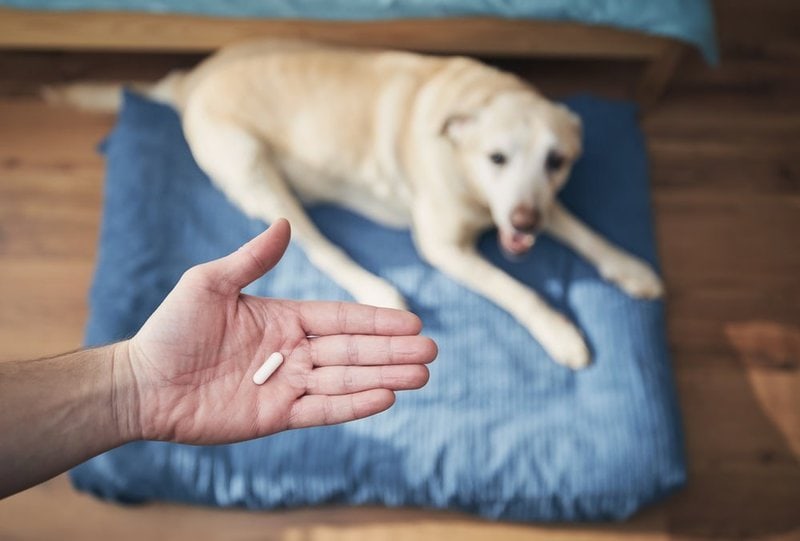Nobody loves to see their dogs fall sick, and in our desperation to see our sick canine buddies bounce back to their feet, people tend to wonder if human antibiotics can be an effective treatment option for dogs.
So, can you give your dog human antibiotics? Normally, it isn’t recommended to treat dogs with antibiotics formulated for human use, as these human-grade antibiotics sometimes contain ingredients such as chemical preservatives that can be toxic to dogs when ingested.
Whether or not human antibiotics are indeed safe for dogs is not as straightforward as a simple ‘yes or no,’ and there are occasions when antibiotics made for human use may be safe for dogs to use. However, the use of human antibiotics for dogs comes with certain risks, which will be outlined in this article.
We’ll also discuss some healthy natural alternatives to human antibiotics that you can use for your canine buddy. But before we go into all this, let’s provide a clearer answer as to whether or not human antibiotics are safe for dogs to use.
Can I Give My Dog Human Antibiotics?
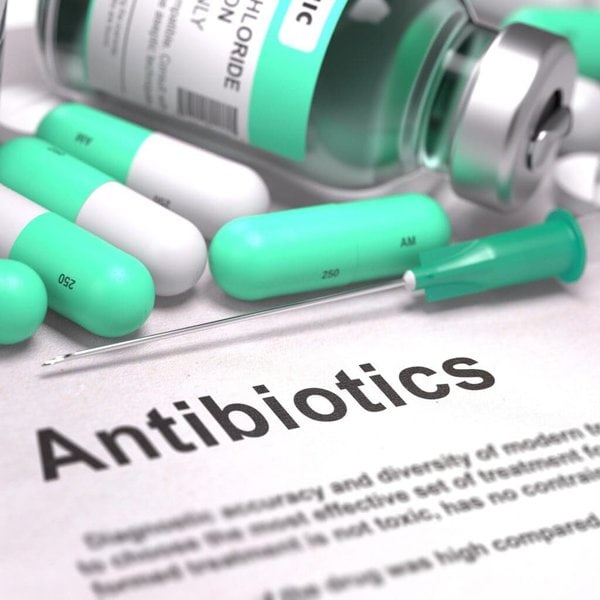
Human antibiotics may contain ingredients that are toxic to dogs; Hence, it is recommended that you avoid giving antibiotics made for human use to your pooch.
Are Human And Dog Antibiotics The Same?
The human and canine bodies process substances differently; Hence there are slight differences in the way antibiotics are prepared for both body systems.
For instance, certain human antibiotic products contain ingredients such as artificial flavors, colors, and chemical preservatives, most of which don’t work in tandem with a pooch’s body system.
Additionally, while it is true that both human and animal antibiotics work to eliminate harmful bacteria located in the body, antibiotics tend to have different side effects in different species, thereby making it unwise to use human antibiotics for dogs and vice versa.
These types of human-grade antibiotics that are usually labeled ‘for human use only,’ when used for dogs, tend to affect the pooch’s tissues and organs, in addition to eliminating the bacteria they were originally intended for.
Why Are Human Antibiotics Dangerous For Dogs?
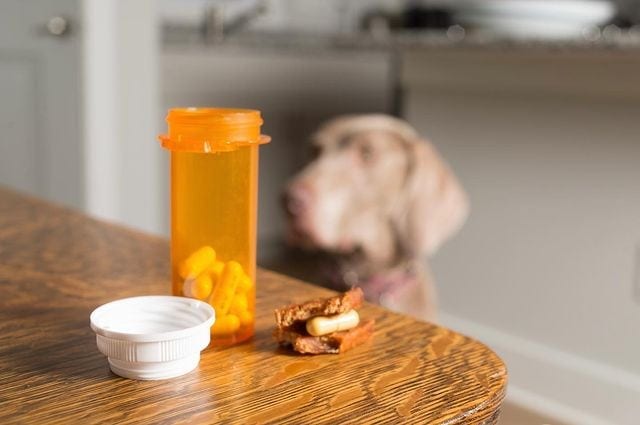
Human antibiotics aren’t safe for dog use because they typically contain ingredients that can be extremely toxic to dogs when ingested.
We’ve mentioned earlier how human antibiotics sometimes contain chemical preservatives and artificial flavors that can be toxic to dogs. And one of such harmful ingredients is the artificial sweetener known as xylitol.
Xylitol Poisoning
Some human antibiotics contain xylitol, and this ingredient can be extremely toxic to pooches, even when consumed in little amounts. Xylitol is a sugar substitute, and its use in human antibiotics is to make the drug easier to use, but for dogs, this isn’t the case.
Consumption of xylitol in dogs is linked with a drastic drop in the canine blood sugar level, and this typically comes with symptoms such as vomiting, loss of body coordination, seizures, and in advanced cases, liver failure!
That said, xylitol consumption by dogs is a medical emergency, and if you give your canine buddy human antibiotics containing this ingredient, you should get on the phone with a vet right away!
Differences In Dosage
Another issue with giving human antibiotics to dogs and vice-versa is the fact that the dosage of such antibiotics that will be effective in humans can be toxic to dogs.
Without a vet’s instructions, striking a balance between the appropriate dosage of human antibiotics that can be given to dogs is a considerably difficult task. And overdosing a dog with human antibiotics can result in the development of undesirable side effects.
What Can I Give My Dog Instead Of Human Antibiotics?
Antibiotics that are safe for use in dogs include Amoxicillin, Metronidazole, and Gentamicin. Alternatively, natural treatments such as oregano oil, Manuka honey, and colloidal silver make great alternatives to antibiotics for dogs.
There are several types of antibiotics that are commonly prescribed for use in dogs by veterinarians, each type performing different functions within the canine buddy.
That said, some of the antibiotics that are safe for dogs to use, with the prescribed dosage, include:
- Amoxicillin
- Tetracycline
- Metronidazole
- Gentamicin
- Cephalexin
- Enrofloxacin
NOTE: These antibiotics are generally safe for use in dogs. Regardless, it is advisable that you get a vet’s prescription before you use any of the aforementioned antibiotics to treat your canine buddy.
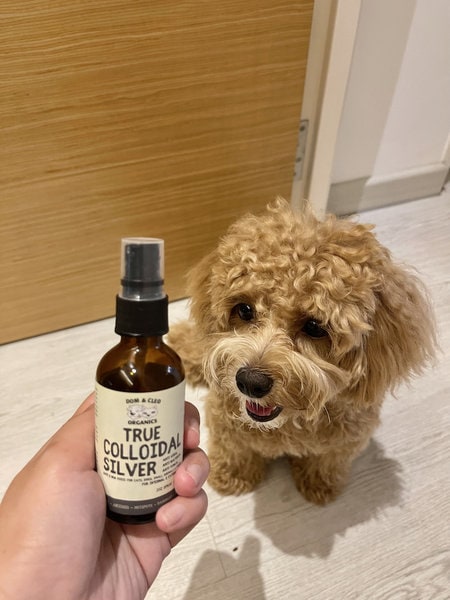
Natural Alternatives To Antibiotics For Dogs
Some natural food and essential oils with properties that are great at fighting off bacterial infections and which can be used as antibiotics include:
Oregano Oil
Oregano oil is known to be one of the best natural ingredients that contain antibiotic properties suitable for canine use, and this is with good reason.
This herb oil has two specific ingredients, carvacrol, and thymol, which are quite effective at fighting off bacterial, viral, parasitic, and fungal infections. That said, oregano oil is best used for treating mild canine infections and for fighting off bacteria located in a specific area of the pooch’s body.
Manuka Honey
Honey is renowned for boasting a host of medicinal properties, and Manuka honey, in particular, has special antifungal properties that make it suitable for use as a dog antibiotic.
Manuka honey is best used for treating asthma in dogs, but it also works to reduce inflammation and treat dry and itchy skin.
Apple Cider Vinegar
Apple cider vinegar is best described as a multipurpose ingredient, and it is no surprise that this ingredient has antibiotic properties that can help fight gut inflammation and tackle ear infections.
Coconut Oil
Coconut oil naturally contains antibacterial and antifungal properties, and as a result, this ingredient makes a great choice of a natural antibiotic that can be used to address various health conditions in dogs.
That said, coconut oil is commonly used to address canine skin issues, but it can also be effective at resolving problems with a dog’s stomach.
Can Antibiotics Be Bad For Dogs?
Antibiotic usage in dogs has been linked to the development of mild to severe allergic reactions, elimination of harmful bacteria, and stomach upsets in the pooch.
Regardless of how wonderful antibiotics can be in treating dog ailments, these drugs typically come with certain side effects that can make a pooch really uncomfortable. And without further ado, side effects of antibiotics usage in dogs include:
Allergic Reactions
Dogs can develop allergic reactions to certain antibiotics, but it has to be said that this is relatively uncommon. These allergic reactions, when developed in dogs as a result of antibiotic usage, can range from mild to severe. The symptoms of the reaction may develop immediately or a few hours after taking the antibiotic.
That said, symptoms commonly exhibited by dogs suffering an allergic reaction caused by using antibiotics include breathing difficulties, seizures, face swelling, vomiting, and diarrhea, among others.
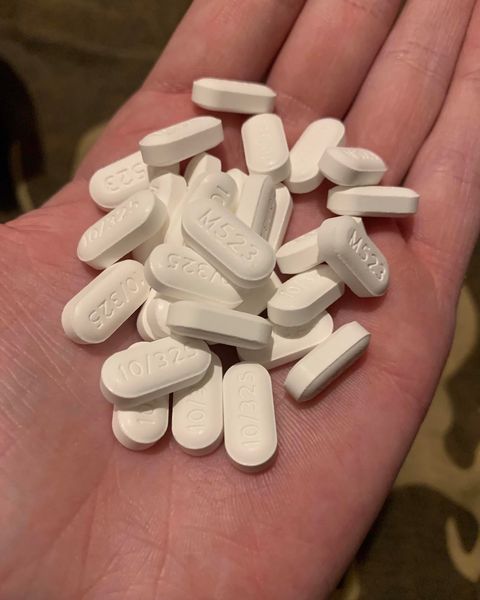
Killing Off Beneficial Bacteria
Some antibiotics, after taking care of harmful microorganisms within a pooch’s body, typically go a step further and eliminate the beneficial bacteria in a dog’s body.
These beneficial microbes typically boost a dog’s immune system, as well as aid the digestion of food. And when the microbes are killed by the antibiotics, an imbalance is created within the pooch’s body, which in turn leads to the development of several other health conditions.
Gastrointestinal Upset
Some antibiotics also induce stomach upset and diarrhea in dogs, with these conditions typically appearing within 1 to 2 days of starting the pooch on the antibiotic in question.
That said, stomach upsets that typically occur when a dog is given antibiotics can be avoided by administering the drug with food. But if your dog’s stomach upsets persist, even when you administer antibiotics with food, then it is recommended that you consult a vet for advice.

